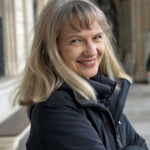Parents against Radiation. A case study
October 2012 - October 2020
After the triple disaster from March 11, 2011, many people became active in social movement organizations – either in organizations founded out of fear about the dangers of the Fukushima fall-out, or in the pre-existing Japanese anti-nuclear movement, which found renewed interest since then.
Especially children can potentially suffer severe health consequences due to internal and external radiation exposure, even if the extend of the expected health risks are not undisputed. In any case, the situation in post 3/11 Japan has in particular influenced parents of young children to become socially and politically involved in the fight for protecting their offspring from food and environment tainted by radioactivity. This, for example, can be seen in the newly founded, nationwide parental network of over 300 organizations focusing on just that.
This project analyzes parent’s social and political activities: how they founded an organization to protect children in the first place, and how their activities have developed since. Using social movement theories on framing, frame-extension and mobilization, we look at the kodomo o mamorukai, a nationwide network of organizations to protect children. Specifically the local chapter of the Chiyoda district is at the center of our inquiry.
We chose a mixed-methods approach for this study: conducting an internet-based survey among the parents of the network, a content analysis of the mailing list postings of the organization, participant observation among the members during their regular meetings, as well as semi-structured interviews with the main actors of the organization.
Events
Team
 Phoebe Stella Holdgrün (until October 2017)
Phoebe Stella Holdgrün (until October 2017) Barbara Holthus
Barbara Holthus